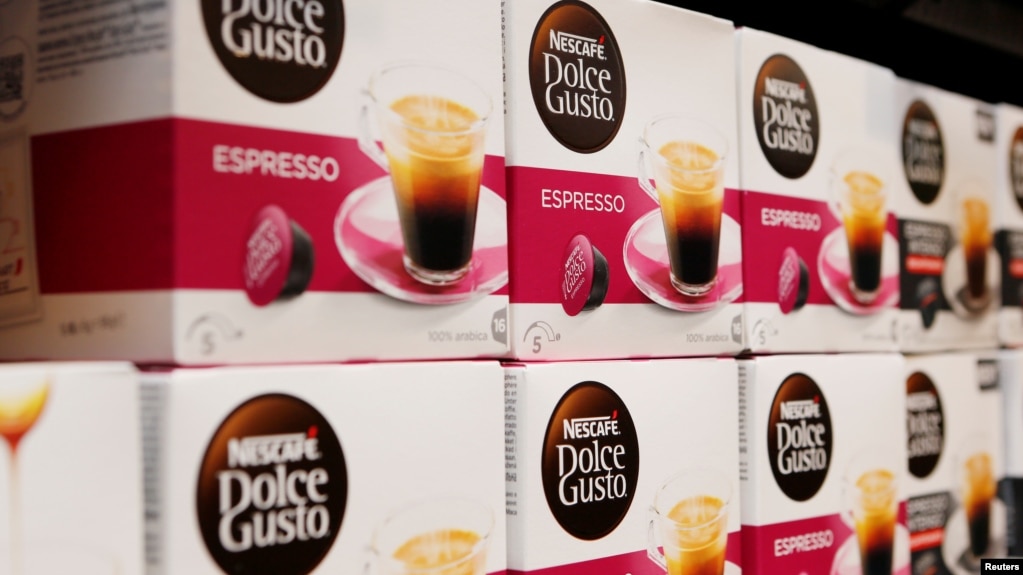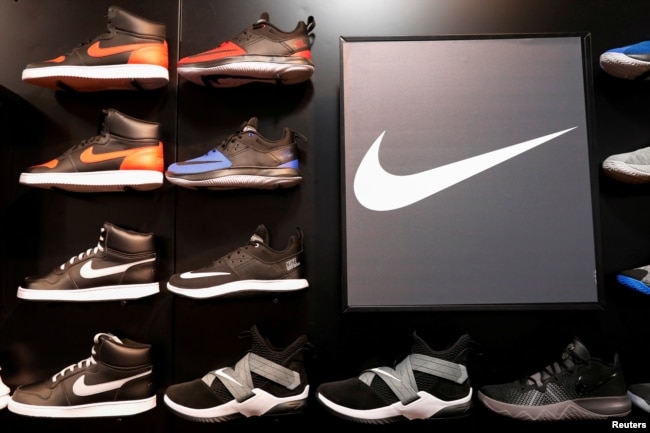コロナ禍における需要と供給の変化
在宅勤務が増え、機器に疎い私でさえも、PCデスク周りのガジェット、色々揃えちゃいました♫
次は椅子も欲しいかな?
リモートワークになって、環境が変化したのだから、必要品が違ってきて当り前じゃない、と思っていました。
経済学における、需要曲線と供給曲線、そして均衡点。
一般教養で大学時代に学びましたね。
どうもこれまでと少し違うようなのです。
今日のVOAニュース、早速聴いてみましょう!!!
- コーヒー、ケチャップ、ナイキエアマックス:COVIDの消費者経済
- アダム・スミス「神の見えざる手」とA・セン「合理的な愚か者」
- Coffee, Ketchup, Nike Air Max: It's the COVID Consumer Economy
- Words in This Story
コーヒー、ケチャップ、ナイキエアマックス:COVIDの消費者経済
Coffee, Ketchup, Nike Air Max: It's the COVID Consumer Economy
インスタントコーヒーミックスやナイキエアマックスの履物が流行り、ボトル入り水と高級バーバリーのトレンチコートは廃れています。
コロナウイルス健康危機のアメリカの消費経済へようこそ。それはアメリカ人がこれまでに経験したことのある事がらとは完全に異なっています。
「需要と供給について知っていたことは全て、捨て去るのです...なぜなら消費者の行動が完全に変化したからです 。」と ピョートル・ドウォルザック氏は言います。 同氏はイリノイ州ノースウェスタン大学で経済学の助教授を務めています。
ロイター通信は、COVID-19危機が衣料品から食品に至るまでの消費者行動をどのように変化させたかを示すために、幅広い多種多様な商品や製品を調べました。これらの変化により、一部の企業は価格を引き上げるか、少なくとも価格の引き下げを止めることができるようになりました。
ビジネスの専門家によれば、これらの変化はすべて一つの変化に結びつくといいます:在宅勤務です。
ごく短期間の間に、予測可能な仕事と家庭での支出を伴う消費者主導の経済は、完全に変化したのです。いくつかの製品に対する需要の増加と、サプライチェーンの問題が価格を押し上げました。
ロイターの調査によると、アメリカの消費者は現在、コーヒー、卵、チーズに1年前よりも多くの支出をしているといいます。この調査は、ニールソン社や他のデータ収集事業者の最新の価格情報に基づいています。
ナイキ・エアマックスのスニーカーやルイ・ヴィトンのハンドバッグなど、より高価なものほど需要と価格が上昇しています。
エコノミストは、多くの人が今、店で物を買ったり、レストランで食事をしたりすることができないため、より多くのお金を持っていると説明しています。
他にも仕事を失った労働者の多くは、連邦政府のプログラムからお金を受け取っています。
ミシガン大学でビジネス経済学と公共政策の助教授を務めるニルパマ・ラオ氏は、「消費者のことを...妙な意味で考えれば、仕事を続けていれば、可処分所得が増えるかもしれません」と語っています。
アメリカ人は、7 月から 8 月の間に店舗で一種類のインスタントコーヒーのに 約 8 %多く 支払ったことをニールセン会社は見つけました。このようなインフレは、家庭で使用される製品の需要の増加を考えると、理にかなっているかもしれません。しかし、専門家の中には、何百万人もの人々が仕事を失っている間に、店や大企業は利益を増やすためにその力を使っていると考えている人もいます。
著名な企業は、高い価格を支払わなければならない消費者に圧力をかけながら、"私腹を肥やしてきた "とバート・フリッキンガー氏は言います。彼は戦略的資源グループの小売販売の専門家です。
他の業界専門家は、COVID-19 パンデミックのために、多くの企業がコストのかかる生産変更を受け入れなければならなかったことに注目しています。
例えば、COVID-19が流行する前は、何千万人もの労働者が通勤時に一杯のコーヒーを買って飲んでいました。今では、彼らは毎日家でコーヒーを作り、その代わりにコーヒーミックスを買いたがるようになりました。これは、コーヒー業界が家庭用の小型パッケージの生産量を増やさなければならなかったことを意味します。
卵のサプライヤーは、人々がより新鮮な卵を求めているため、卵詰めの生産量を増やさなければなりませんでした。
しかし、消費者企業は油断をしていると将来的にダメージを受ける可能性があります。
ボトル入りの水や、おむつの価格は上昇していますが、それらの製品に対する需要はパンデミックの大部分の間低下しています。家で自分の水を飲むことができるのに、人々は水にお金を払いたくないのです。また、両親と赤ちゃんが一日中家にいるときには、より安価なオムツを使うことができます。
COVID-19 安全性の制限は、多くのアメリカ人が旅行や外食、映画館に行かないことを意味しています。彼らは車の運転を減らしているので、車の燃料の購入量を減らしています。これは、高額商品を買うお金があることを意味しています。
マイケル・コリンズ氏は、ウィスコンシン大学の消費者科学部の教授です。彼によると、パンデミックの間、多くのアメリカ人は、節約しているお金のおかげで、高級品を買うことができると感じているそうです。
「今は外食を全くしないので、数百ドルは持っています。」と彼は言います。この”浮いた”お金で、人は高級品を買うことができるのです。
この行動が、エアマックスの需要と価格の上昇を説明できるかもしれません。ナイキのオンライン販売は7月に約50%増加したと、ある衣料品データビジネスは指摘しています。
これとは別に、ルイ・ヴィトン(Louis Vuitton)のネヴァーフルMMモノグラムハンドバッグの価格は、5月に入ってからウェブサイト上で5%上昇しています。7月、ルイ・ヴィトンのオーナーLVMHは、半年間に3回の値上げをしても、6月から売り上げが伸びたと述べていました。
しかし、いくつかの限界があります。
バーバリーの女性用トレンチコートの需要は、過去1年間で約11%減少しています。2,245ドルもするし、オフィスに行かなくなった女性たちは、もはやアウトドアウェアに大金をかけたくないと思っているのです。
アダム・スミス「神の見えざる手」とA・セン「合理的な愚か者」
ちょっと面白い記事を見つけたので。。。
九州産業大学大学院教授、九州大学名誉教授経済学者・高哲男氏が書かれています。
以下抜粋
スミスが『国富論』で説いた「自然的自由の体制」とは、自由競争下にある商人社会のことを指している。スミスは、商人——自分自身の利益だけを合理的に追及する人間——からなる社会では、「幸福と快適さが低下する」という。
つまり、社会の存続には「正義」が不可欠だということだ。
彼が考えていた社会観・国家観とは、「神の見えざる手」によって、放っておけばうまくいく、というようなものではなかった。むしろそのような自由放任の社会の中で、必要不可欠な「正義」や「道徳」がいかにして形作られるのかを、彼は考え抜いたのである。
スミスは〈必要な援助が、愛、謝意、友情、および尊敬にもとづいて互恵的に与えられている場合、その社会は繁栄するし、幸福である〉という。この言葉の裏側には、これらすべてが自発的な「義務感」に由来する道徳に支えられている、という含意がある。
そこで思い出だしたのが、
『合意的な愚か者』A・セン
 出典:Amazon
出典:Amazon
1933年イギリス統治下のインド・ベンガル州に生まれたアマルティア・センは、現在ハーバード大学の経済学・哲学教授。本訳書は、センの70年代の重要論文をその論文集から訳出したものです。
センはアジア人初のノーベル経済学賞を受賞した経済学者です。
共感とコミットメント(使命)を行動の規範とすると述べています。
Coffee, Ketchup, Nike Air Max: It's the COVID Consumer Economy
 FILE - Instant coffee maker Nescafe boxes are pictured in the supermarket of Nestle headquarters in Vevey, Switzerland, February 16, 2017. (REUTERS/Pierre Albouy)
FILE - Instant coffee maker Nescafe boxes are pictured in the supermarket of Nestle headquarters in Vevey, Switzerland, February 16, 2017. (REUTERS/Pierre Albouy)
Instant coffee mix and Nike Air Max footwear are all in. Bottled water and high-end Burberry trench coats are out.
Welcome to America’s consumer economy in the coronavirus health crisis. It is completely different than anything that Americans have ever experienced.
“Everything we knew about supply and demand, we can…throw out…because consumer behavior has changed completely,” said Piotr Dworczak. He is an assistant professor of economics at Northwestern University in Illinois.
Reuters news agency examined a wide mix of goods and products to show how the COVID-19 crisis has changed consumer behavior for everything from clothing to food. These changes have given some businesses the power to raise prices or, at least, stop lowering prices.
Business experts say all of this can be linked to one change: working from home.
Over a very short period, a consumer-driven economy with predictable work and home spending changed completely. Rising demand for some products, as well as supply-chain problems, has pushed prices up.
American consumers are now spending a lot more than they did a year ago on coffee, eggs, and cheese, the Reuters study found. The study was based on the latest pricing information from the Nielson Company and other data-gathering businesses.
Demand and prices have increased for more costly items, such as Nike Air Max sneakers or a Louis Vuitton handbag.
Economists explain this by saying that many people have more money right now because they are unable to buy things at stores or eat in restaurants.
Many other workers who lost their jobs are receiving money from a federal program.
“If I were to consider the consumer…in a strange way, they may have more disposable income, if they kept their job,” said Nirupama Rao, an assistant professor of business economics and public policy at the University of Michigan.
Americans paid about 8 percent more for one kind of instant coffee at stores between July and August, the Nielsen Company found. Such inflation might make sense, given the increase in demand for products used in and around the home. But some experts believe stores and big businesses are using their power to increase profits while millions of people are out of work.
Well-known companies “have been fattening their pockets” while putting pressure on the consumer who has to pay those higher prices,” said Burt Flickinger. He is an expert on retail sales at Strategic Resource Group.
Other industry experts note that many businesses have had to accept costly production changes because of the COVID-19 pandemic.
For example, before COVID-19, tens of millions of workers bought a cup of coffee to drink on their way to work. Now, they make coffee at home every day and want to buy coffee mix instead. That means the coffee industry has had to increase production of smaller packaging for home use.
Egg suppliers have had to increase production of egg packaging because people want more fresh eggs.
Yet consumer companies can be hurt in the future if they are not careful.
Prices for bottled water and diapers have gone up, while demand for those products has fallen for most of the pandemic. People are unwilling to pay for water when they can drink their own water at home. Parents can also use less costly diapers when they and their baby are staying home all day.
COVID-19 safety restrictions have meant many Americans do not travel, eat out, or go to movie theaters. They are driving much less, so they buy less fuel for their cars. This means they have the money to buy high-priced items.
Michael Collins is a professor at the University of Wisconsin’s consumer science department. He says that during the pandemic, many Americans feel like they can buy high-end goods because of the money they are saving.
“Now I don’t eat out at all, so I have a couple of hundred dollars,” he said. With this “found” money, a person can buy a luxury item.
This behavior could explain the rise in demand and prices for the Air Max. Nike online sales increased about 50 percent in July, noted a clothing data business.
Separately, the price of Louis Vuitton’s Neverfull MM Monogram handbag has risen 5 percent on its website since the start of May. In July, Louis Vuitton owner LVMH said sales had increased since June, even with three price increases in six months.
There are some limits, however.
Demand for a Burberry woman’s trench coat has fallen about 11 percent over the past year. It costs $2,245, and women who no longer go into the office, no longer want to spend a lot of money on outdoor wear.
________________________________________________________________
Words in This Story
consumer – n. one that utilizes economic goods
supply chain – n. the companies from which one orders products to make one’s own product
data – n. information
handbag – n. the item most women carry to hold personal items
disposable -adj. something that is discarded after use
retail – adj. things that are sold to the public in stores or online
pocket – n. a space sewn into clothing for holding small items
pandemic – n. a contagious disease that moves across national borders
package - n. a box or large envelope that is sent or delivered usually through the mail or by another delivery service
diaper - n. a piece of cloth or other material that is placed between a baby's legs and fastened around the waist to hold body waste
